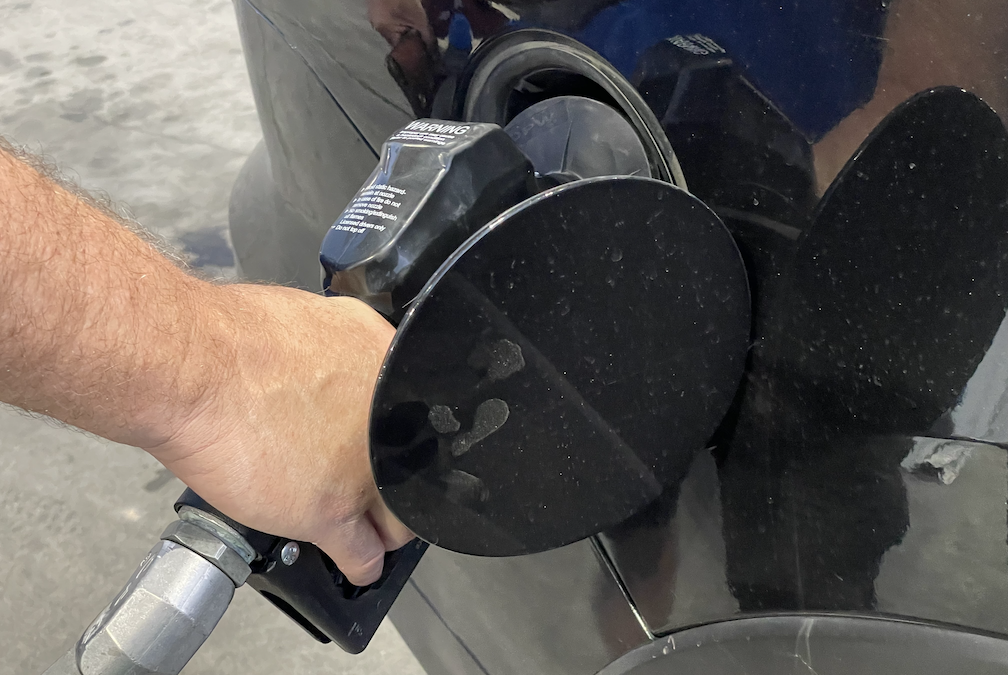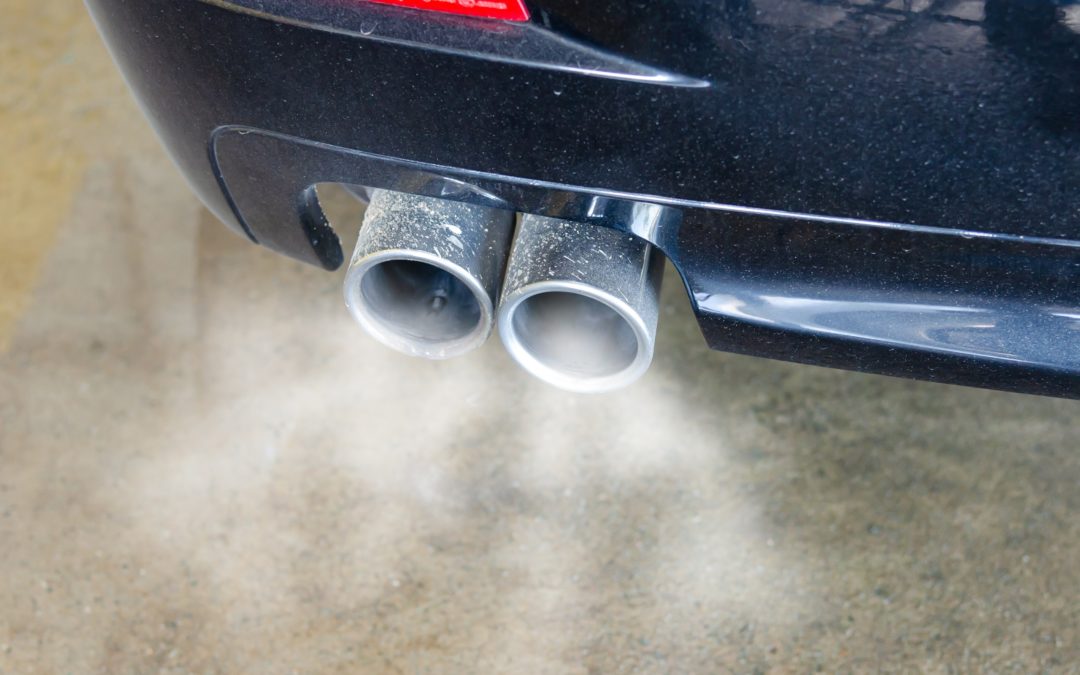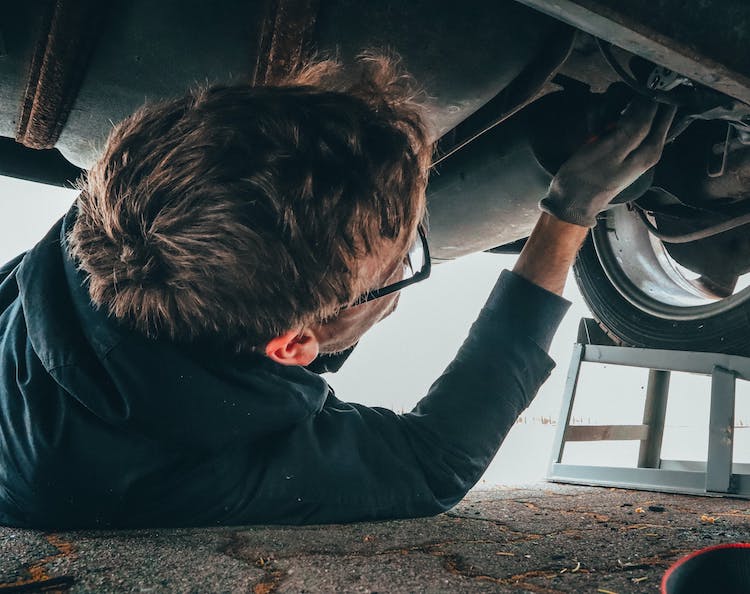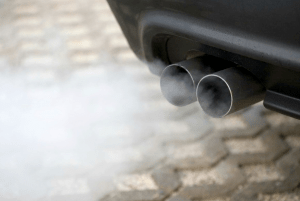
by Michael Lazo | Jan 24, 2025 | Auto Repair Northern Colorado, Exhaust System
Your vehicle’s Evaporative Emission Control (EVAP) system might not be a hot topic around the dinner table, but it plays a vital role in keeping both your vehicle and our environment healthy. While the EVAP is often out of sight and out of mind, ignoring issues with this critical system can lead to bigger problems down the road. In this month’s blog post, we highlight the EVAP and common problems that you might experience in your vehicle. (more…)

by Michael Lazo | Feb 19, 2021 | Auto Repair Northern Colorado, Exhaust System
Have you ever waited at a stop light behind another vehicle, and as soon as the light turned green and the vehicle in front accelerated you were shrouded in a cloud of smoke? If you have experienced this situation, it was most likely an indication of a vehicle exhaust system issue.
Simply stated, the primary function of your vehicle’s exhaust system is to filter toxic gases from the engine and safely and cleanly release them into the atmosphere. Additionally, your vehicle’s exhaust system is designed to reduce the noise associated with exhaust emission from your combustion engine.
In this blog, we review the key components of the exhaust system along with common exhaust system problems. (more…)

by Anne Lazo | May 20, 2020 | Auto Repair Northern Colorado, Campus Repair, Exhaust System, Preventive Maintenance
Most drivers have probably heard of a catalytic converter – but do you really know what it is and what it does? In this article, we cover some basics about the catalytic converter and ways to keep it operating effectively in your vehicle so you can avoid catalytic converter repair.

by admin | Jan 11, 2019 | Auto Repair Northern Colorado, Campus Repair, Exhaust System, Preventive Maintenance
When most people think of the exhaust system, they imagine the tailpipe and muffler. In fact, it’s much more than those two parts and has a very important job to do – protect you and your passengers from being exposed to harmful gases. The system also minimizes pollution in the environment. In this blog post, you will learn about the exhaust system along with some of the signs there’s a problem that requires exhaust system repair. You’ll also learn how you can maintain the exhaust system.
If your vehicle is equipped with a combustion engine, the proper amount of fuel and air is mixed together and ignited at the right time to run the engine. When the fuel/air is ignited, it creates noxious gases that are passed out of the engine and into the environment through the exhaust system. Any number of things can affect the performance of the exhaust system – bad spark plugs, a faulty oxygen sensor, etc. Equally, if any part of the exhaust system is faulty, you are at risk of being exposed to dangerous gases (e.g. carbon monoxide). If you delay any repairs to a faulty exhaust system, you may even begin to feel sick, fatigued, light-headed and more.
The main parts of the exhaust system
There are five main parts that make up the exhaust system. A problem with any one of these parts will affect engine performance and your safety. They are:
- Exhaust Manifold – The exhaust manifold is connected at the cylinder head and collects the gases generated during combustion and delivers them to the exhaust pipe.
- Oxygen Sensor – The oxygen sensor is continually measuring the amount of oxygen that is in the exhaust. The data it collects is then sent to the onboard computer which adjusts the ratio of fuel to air.
- Exhaust Pipes – They begin at the exhaust manifold and send gases through the system where they exit at the tailpipe.
- Catalytic Converter – Just like the name implies, the catalytic converter is responsible for changing the harmful into water vapor and less harmful gases.
- Muffler – This part “muffles” or quiets the explosions that are going on in the engine from the combustion of air and gas.
Signs that exhaust repair is needed
Any of these signs indicate that exhaust repair is needed:
- You notice the smell of exhaust fumes while driving – This is not something to ignore as it is quite dangerous to you and your passengers. The reason you are smelling the exhaust is because there is a leak in the system that is entering the cabin.
- You hear hissing, popping or loud rumbling noises – If your vehicle starts to sound louder and louder with hissing, popping or loud noises coming from underneath, most likely you will need to replace the muffler.
- You are getting less gas mileage – This could mean the oxygen sensor needs to be replaced.
- The exhaust system is plugged – Plugged exhaust is caused by the catalytic converter element breaking down and becoming lodged in the exhaust system. symptoms include poor acceleration, feeling like it is stuck in lower gear and a Check Engine Light. The engine has to have a clear path in and out for air so if the exhaust is plugged it’s like running with your hand over your mouth.
The “Check Engine Light” and the Exhaust System
The Check Engine or the Service Engine Soon light alerts you when there is a problem with your vehicle’s emissions system. The emissions are what is going through the exhaust system so it all plays a role together. If the light comes on and stays on, you should have your vehicle checked and fixed as soon as possible. By delaying Check Engine light repairs, you could end up having to replace more expensive parts, like the catalytic converter.
Maintaining the Exhaust System
Since it’s located underneath your vehicle, there’s not really much you can do to maintain the exhaust system. You can, however, make sure you wash the underside of your vehicle at least once a month, especially in the winter. That’s because the Mag Chloride on the roads will end up causing rust and corrosion. Also, have the exhaust system inspected and fix minor problems before they become costly repairs.
Let Campus Repair assist you with the maintenance and repairs on your exhaust system. When you bring your car, van or truck in for periodic service, we complete a courtesy inspection. If we see a problem with the exhaust system, we’ll let you know so you can take care of it. If you’re having a problem with the exhaust system, give us a call or stop by the shop.




